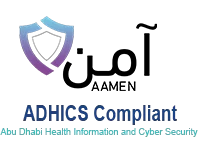Have you ever wondered about the difference between hypertension and hypotension?
Blood pressure is the pressure of blood against the walls of your arteries. Arteries carry blood from your heart to other parts of your body.
Normally, your blood pressure rises and falls throughout the day.
Usually we measure the blood pressure using two numbers:
- The first number is known as systolic blood pressure, it measures the pressure in your arteries when your heart beats.
- The second number is known as diastolic blood pressure, it measures the pressure in your arteries when your heart rests between beats.
If the measurement reads 120 systolic and 80 diastolic, you would say, “120 over 80,” or write, “120/80 mmHg.”
- What is the difference between high blood pressure and low blood pressure?
The normal range of blood pressure is 120/80 therefor:
High blood pressure (or hypertension) is a serious condition because it makes your heart work harder to pump the blood into your body, if not controlled, it results in a high risk of strokes, kidney failure and heart attack.
Meanwhile, low blood pressure (or hypotension) the blood pressure falls below a Systolic value of 80 and Diastolic value of 60.
On the other hand, hypotension is low blood pressure. In this condition, the blood pressure typically falls below a Systolic value of 80 and Diastolic value of 60.
- What are the causes of hypertension and hypotension?
The exact causes are still unknown; however, medical practitioners believe that the following factors contribute in the condition
| Hypertension | Hypotension |
| 1. Obesity 2. Excessive alcohol consumption 3. Increases salt intake 4. Smoking 5. Diabetes 6. Genetics 7. Stress 8. Aging |
1. Infections in the bloodstreams 2. Diabetes 3. Thyroid 4. Blood loss due to injury 5. Weakness due to dehydration 6. Pregnancy |
- How can I know if I’ve hypertension or hypotension?
| Hypertension | Hypotension |
| it doesn’t show any severe noticeable symptom (the reason that it’s called ‘silent killer’) but some symptoms may appear like: 1. sweating 2. sleeping problems 3. anxiety However, if you suffer from headache and nose bleeding you should seek immediate medical attention! |
Some noticeable symptoms that should raise alarm like 1. Unsteadiness 2. Blurry vision 3. Lack of concentration 4. Fatigue 5. Depression 6. Nausea 7. Pale skin 8. Rapid and slow breathing |









